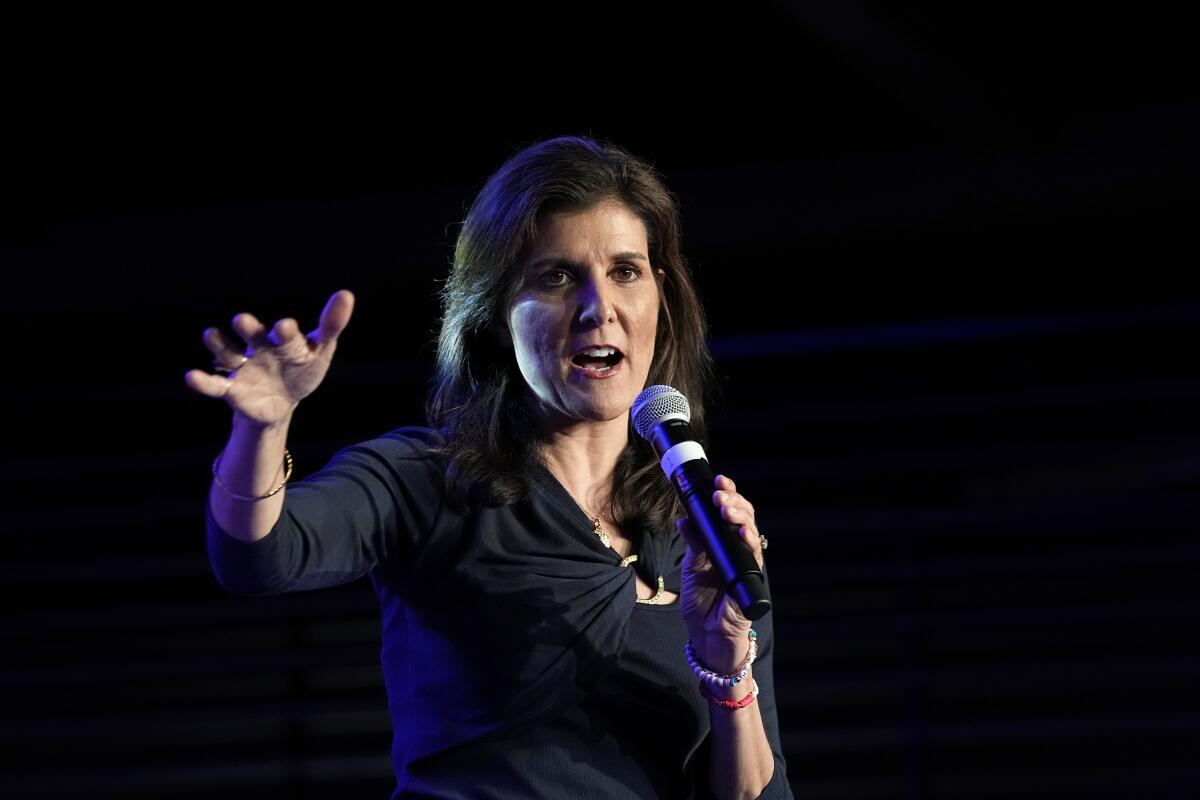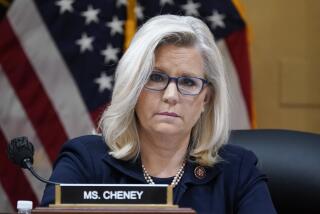Nikki Haley suspends her campaign, won’t immediately endorse Trump

GOP presidential candidate Nikki Haley, who had vowed to continue her campaign despite losing nearly every state in this year’s Republican nominating primary, suspended her campaign Wednesday morning, acknowledging she has no path to victory over former President Trump. .
Trump’s former U.N. ambassador has no immediate plans to endorse him. In a morning speech in South Carolina announcing her decision she said he needs to win the support of Republicans and independent voters who have grown wary of him.
“It is now up to Donald Trump to earn the votes of those in our party and beyond that did not support him. And I hope he does that. At its best, politics is about bringing people into your cause, not turning them away,” Haley said. “And our conservative cause badly needs more people. This is now his time for choosing.”
Trump did not immediately respond to Haley’s remarks. President Biden weighed in, however, praising her.
“It takes a lot of courage to run for President – that’s especially true in today’s Republican Party, where so few dare to speak the truth about Donald Trump,” he said in a statement. “Nikki Haley was willing to speak the truth about Trump: about the chaos that always follows him, about his inability to see right from wrong, about his cowering before Vladimir Putin.”
He urged her supporters to join his effort.
“I know there is a lot we won’t agree on. But on the fundamental issues of preserving American democracy, on standing up for the rule of law, on treating each other with decency and dignity and respect, on preserving NATO and standing up to America’s adversaries, I hope and believe we can find common ground.”
Haley spoke the day after she lost almost every state on Super Tuesday, including California.
In what was effectively a concession speech, Haley highlighted the traditional priorities espoused by the GOP establishment before Trump took hold of the party.
“Although I will no longer be a candidate, I will not stop using my voice for the things I believe in,” Haley said, highlighting the national debt, the size of the federal government, the dysfunction in Congress and her criticism of both Trump and Biden in their approaches to Ukraine, Israel and Taiwan.
“If we retreat further, there will be more war not less. As important while we stand strong for the cause of freedom, we must bind together as Americans, we must turn away from the darkness of hatred and division,” she said.
The former South Carolina governor was viewed as the last bulwark against the former president by anti-Trump Republicans, including veteran California GOP strategist Rob Stutzman, a former advisor to former Gov. Arnold Schwarzenegger. He described himself as unsurprised but disappointed by Haley’s decision.
“Her candidacy was of great purpose. She’s now the leader of the faction of Republicans who do not want Trump in the White House,” Stutzman said.
Trump initially faced a large field of candidates seeking to be an alternative to the former president, including Haley, Florida Gov. Ron DeSantis, former New Jersey Gov. Chris Christie and several others.
Through most of last year, Haley balked at forcefully confronting her former boss, but as the field winnowed, she grew more aggressive. And she frequently highlighted polling that showed she likely would do better against Biden in November than Trump would.
Haley’s positioning drew support from suburban, college-educated and female voters who were once reliable GOP voters, and who cost the party support during Trump’s 2016 and 2020 elections, including in Orange County. She also won backing from traditional Republican donors and outside groups that buttressed her campaign, at least until she began to run up a string of losses.
Trump is on the verge of clinching the 1,215 delegates to win the Republican nomination later this month. However, Haley made history by being the first Republican woman to win primaries — in Washington, D.C., on Sunday, and in Vermont on Tuesday.
More to Read
Get the L.A. Times Politics newsletter
Deeply reported insights into legislation, politics and policy from Sacramento, Washington and beyond. In your inbox three times per week.
You may occasionally receive promotional content from the Los Angeles Times.











